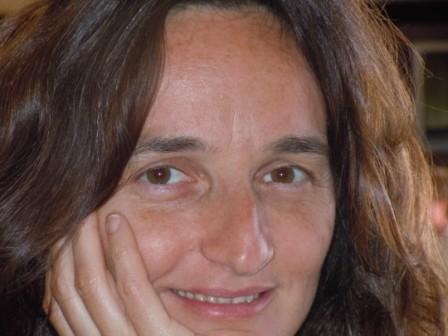"In a hundred years, women will be as present in cinema as men are," French film director Julie Bertucelli optimistically opined, responding to how she felt about the fact that only 5 percent of established directors are men. "The field is so new that women have not yet taken their place."
She did mention that it was enviable that men with families could make a film a year, while women directors are often straddled with family responsibilities. Also, it was still an issue for a woman to impose her authority on men she is directing.
Charlotte Gainsbourg, the lead in Bertuccelli's new film "The Tree", which closed the Cannes film festival this weekend, added her own perspective: "It is weird to actually speak about it, but it is true, it is different to be directed by a woman--and rare. It's only the second time for me. There is both Julie's sensitivity and point of view as a woman; and the complicity between us as women. She was my confidante. It's not the same rapport of seduction as with a man."
Initially a documentarist, Bertuccelli got her teeth in directing by working as an assistant with such greats as Tavernier and Kieslowski. From Kieslowski, she learned to be a perfectionist, to keep going until you got what you wanted. "You should never appear indecisive," she noted. "But film-making is a process. Even Hitchcock didn't know what he wanted yet. It looks perfect and realized when you see the finished film, but we are human like everyone else."
She enthusiastically spoke about her job searching for locales for Kieslowski's trilogy. He was exacting in what he wanted for Juliette Binoche's apartment: a place with an old-fashioned glass elevator, a large courtyard, and a window overlooking a café. It took six months for Julie to find the right place, a process she enjoyed.
In her own film-making, she loved meeting challenges. On the shoot of "The Tree", there was a storm on the set, so they were about to waste four hours of shooting. She immediately loaded technicians in their cars to drive two hours away to shoot a storm scene with a tree, one that she needed for the end of her film. For another scene, she needed bats, and was told they were too expensive. "She got them of course," confided Charlotte. Charlotte noted that what she most admired about Julie as a director was her willpower and strength.
The film itself was not as successful as one might have hoped, given its promising story of a child who talks to a tree, which she believes (or is?) her dead father. The dialogue is a bit stilted, and there are few surprises in the cinematography. What could be a mystical premise a' la Tarkofsky (one imagines winds and footsteps) becomes a matter of a cute blonde child climbing a tree.
Yet one climatic emotional scene makes the film worth-while. Eventually both the little girl and her mother must send the tree packing, in the best moment of the film, a breath-taking tempest, shot so realistically it looks an uncanny Wizard of Oz.
The storm signifies a massive cleaning out of the past.
Bertuccelli told me she had been initially drawn to "The Tree"--the novel by Judy Pascoe--because she liked stories that push people to go from victims to agents in her life. "As a child, I liked how we managed with everything that is around us. With the imagination. Yes the imagination is best! All accidents become things to deal with."
Out of necessity as well.
During the pre-production of the film, Julie's own husband died, leaving her children--as in the film--fatherless. While the story is not about that, knowing the backdrop which "nourished" (in Julie's own words) the storm-swept decision to move on makes the film--tree and all-- a true inspiration.

